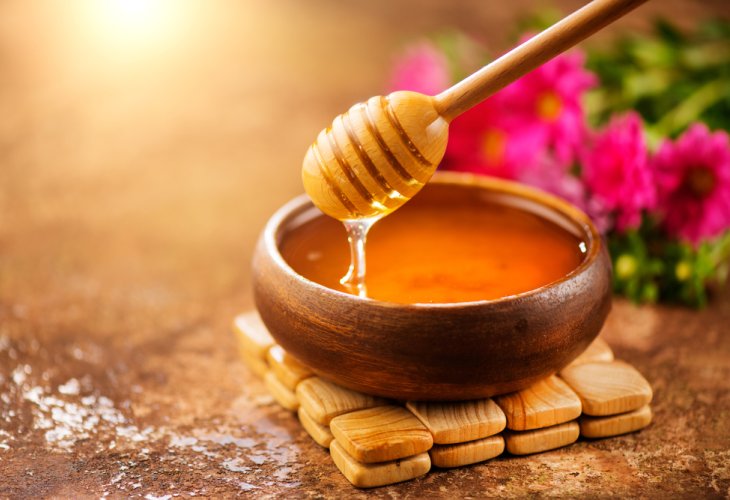Why Does Honey Have Its Unique Hue? Discover the Sweet Symbol
Honey is one of the healthiest sweeteners, and its origins are particularly fascinating. Here's everything you wanted to know about honey.
 (photo: shutterstock)
(photo: shutterstock)We're still inspired by the sweetness of honey that we treasured during Rosh Hashanah.
Honey was already considered an important and refined food in ancient times. The manna that the Israelites ate in the desert was described as tasting like "wafers with honey." Before sugar became widespread, honey was the primary sweetener and the symbol of sweetness! King David of Israel likened the words of the Torah to be "sweeter than honey and drippings from the comb." It's also said of Jonathan, the son of King Saul, that when he dipped his staff into a honeycomb and brought it to his mouth, his eyes brightened.
Busy bees produce honey from nectar. There are different types of honey, made from various kinds of flowers. Each honey has its own flavor, aroma, and color. Generally, wildflower honey is light and delicate, eucalyptus blossoms yield reddish honey, avocado flowers produce dark and pungent honey, and many more varieties exist.
Even before honey, bees are responsible for other healthy substances we use.
The body of the bee is hairy, and pollen grains stick to it. Pollen is a natural food, rich in proteins and vitamins. Although it sometimes tastes bitter, its nutritional value is significant.
Bees secrete wax from their bodies, which they use to build many small hexagonal cells. These cells are connected and known as "honeycomb." The wax is used in the industry to produce a variety of products: candles, cosmetics, medicines, sealing and polishing materials, and more.
Bees collect a special substance from tree resin called propolis. Propolis protects bees from diseases and serves as their natural antibiotic. It’s also used to seal cracks in the hive. From propolis extract, humans produce various ointments for healing wounds and inflammations and for strengthening the immune system.
Honey never spoils. It has high nutritional value: it is rich in minerals that aid in the creation of red blood cells, enzymes and acids that stimulate the digestive system and initiate metabolic processes, and antibiotic substances that prevent infections and contamination.
For a sore throat, mix honey with lemon and drink it. To strengthen heart muscles, it’s recommended to drink a teaspoon of honey with warm water in the morning - it reduces cholesterol and blood fats.
Honey heals wounds, so it is good to apply it on skin burns (as long as they aren't open), and before bed, spread honey on the face and wash it off after half an hour - the skin becomes cleaner and smoother.
Honey is not suitable for infants under one year old, so do not give them honey.
For treating a bee sting, apply honey to the sting area. It soothes and heals.
Of course, consume honey in moderation, "Eat as much honey as you find on your plate." It is not recommended for diabetics, as it raises blood sugar levels.
Wishing everyone a sweet and good year like honey!
To book home sessions with Rebbetzin R. Bazri (free of charge), call 073-2221240

